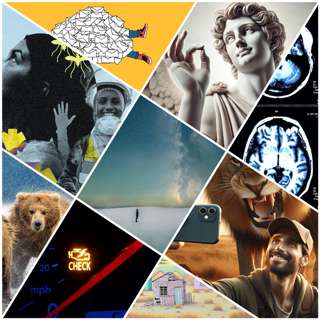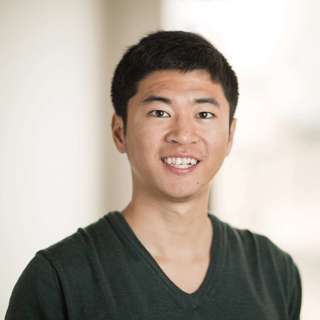
#69 – Jeffrey Ding on China, its AI dream, and what we get wrong about both
The State Council of China's 2017 AI plan was the starting point of China’s AI planning; China’s approach to AI is defined by its top-down and monolithic nature; China is winning the AI arms race; and there is little to no discussion of issues of AI ethics and safety in China. How many of these ideas have you heard? In his paper Deciphering China's AI Dream, today's guest, PhD student Jeff Ding, outlines why he believes none of these claims are true. • Links to learn more, summary and full transcript. • What’s the best charity to donate to? He first places China’s new AI strategy in the context of its past science and technology plans, as well as other countries’ AI plans. What is China actually doing in the space of AI development? Jeff emphasises that China's AI strategy did not appear out of nowhere with the 2017 state council AI development plan, which attracted a lot of overseas attention. Rather that was just another step forward in a long trajectory of increasing focus on science and technology. It's connected with a plan to develop an 'Internet of Things', and linked to a history of strategic planning for technology in areas like aerospace and biotechnology. And it was not just the central government that was moving in this space; companies were already pushing forward in AI development, and local level governments already had their own AI plans. You could argue that the central government was following their lead in AI more than the reverse. What are the different levers that China is pulling to try to spur AI development? Here, Jeff wanted to challenge the myth that China's AI development plan is based on a monolithic central plan requiring people to develop AI. In fact, bureaucratic agencies, companies, academic labs, and local governments each set up their own strategies, which sometimes conflict with the central government. Are China's AI capabilities especially impressive? In the paper Jeff develops a new index to measure and compare the US and China's progress in AI. Jeff’s AI Potential Index — which incorporates trends and capabilities in data, hardware, research and talent, and the commercial AI ecosystem — indicates China’s AI capabilities are about half those of America. His measure, though imperfect, dispels the notion that China's AI capabilities have surpassed the US or make it the world's leading AI power. Following that 2017 plan, a lot of Western observers thought that to have a good national AI strategy we'd need to figure out how to play catch-up with China. Yet Chinese strategic thinkers and writers at the time actually thought that they were behind — because the Obama administration had issued a series of three white papers in 2016. Finally, Jeff turns to the potential consequences of China’s AI dream for issues of national security, economic development, AI safety and social governance. He claims that, despite the widespread belief to the contrary, substantive discussions about AI safety and ethics are indeed emerging in China. For instance, a new book from Tencent’s Research Institute is proactive in calling for stronger awareness of AI safety issues. In today’s episode, Rob and Jeff go through this widely-discussed report, and also cover: • The best analogies for thinking about the growing influence of AI • How do prominent Chinese figures think about AI? • Coordination with China • China’s social credit system • Suggestions for people who want to become professional China specialists • And more. Chapters:Rob’s intro (00:00:00)The interview begins (00:01:02)Deciphering China’s AI Dream (00:04:17)Analogies for thinking about AI (00:12:30)How do prominent Chinese figures think about AI? (00:16:15)Cultural cliches in the West and China (00:18:59)Coordination with China on AI (00:24:03)Private companies vs. government research (00:28:55)Compute (00:31:58)China’s social credit system (00:41:26)Relationship between China and other countries beyond AI (00:43:51)Careers advice (00:54:40)Jeffrey’s talk at EAG (01:16:01)Rob’s outro (01:37:12) Producer: Keiran Harris.Audio mastering: Ben Cordell. Transcriptions: Zakee Ulhaq.
6 Helmi 20201h 37min

Rob & Howie on what we do and don't know about 2019-nCoV
Two 80,000 Hours researchers, Robert Wiblin and Howie Lempel, record an experimental bonus episode about the new 2019-nCoV virus.See this list of resources, including many discussed in the episode, to learn more.In the 1h15m conversation we cover:• What is it? • How many people have it? • How contagious is it? • What fraction of people who contract it die?• How likely is it to spread out of control?• What's the range of plausible fatalities worldwide?• How does it compare to other epidemics?• What don't we know and why? • What actions should listeners take, if any?• How should the complexities of the above be communicated by public health professionals?Here's a link to the hygiene advice from Laurie Garrett mentioned in the episode.Recorded 2 Feb 2020.The 80,000 Hours Podcast is produced by Keiran Harris.
3 Helmi 20201h 18min

#68 - Will MacAskill on the paralysis argument, whether we're at the hinge of history, & his new priorities
You’re given a box with a set of dice in it. If you roll an even number, a person's life is saved. If you roll an odd number, someone else will die. Each time you shake the box you get $10. Should you do it? A committed consequentialist might say, "Sure! Free money!" But most will think it obvious that you should say no. You've only gotten a tiny benefit, in exchange for moral responsibility over whether other people live or die. And yet, according to today’s return guest, philosophy Prof Will MacAskill, in a real sense we’re shaking this box every time we leave the house, and those who think shaking the box is wrong should probably also be shutting themselves indoors and minimising their interactions with others. • Links to learn more, summary and full transcript. • Job opportunities at the Global Priorities Institute. To see this, imagine you’re deciding whether to redeem a coupon for a free movie. If you go, you’ll need to drive to the cinema. By affecting traffic throughout the city, you’ll have slightly impacted the schedules of thousands or tens of thousands of people. The average life is about 30,000 days, and over the course of a life the average person will have about two children. So — if you’ve impacted at least 7,500 days — then, statistically speaking, you've probably influenced the exact timing of a conception event. With 200 million sperm in the running each time, changing the moment of copulation, even by a fraction of a second, will almost certainly mean you've changed the identity of a future person. That different child will now impact all sorts of things as they go about their life, including future conception events. And then those new people will impact further future conceptions events, and so on. After 100 or maybe 200 years, basically everybody alive will be a different person because you went to the movies. As a result, you’ll have changed when many people die. Take car crashes as one example: about 1.3% of people die in car crashes. Over that century, as the identities of everyone change as a result of your action, many of the 'new' people will cause car crashes that wouldn't have occurred in their absence, including crashes that prematurely kill people alive today. Of course, in expectation, exactly the same number of people will have been saved from car crashes, and will die later than they would have otherwise. So, if you go for this drive, you’ll save hundreds of people from premature death, and cause the early death of an equal number of others. But you’ll get to see a free movie, worth $10. Should you do it? This setup forms the basis of ‘the paralysis argument’, explored in one of Will’s recent papers. Because most 'non-consequentialists' endorse an act/omission distinction… post truncated due to character limit, finish reading the full explanation here. So what's the best way to fix this strange conclusion? We discuss a few options, but the most promising might bring people a lot closer to full consequentialism than is immediately apparent. In this episode Will and I also cover: • Are, or are we not, living in the most influential time in history? • The culture of the effective altruism community • Will's new lower estimate of the risk of human extinction • Why Will is now less focused on AI • The differences between Americans and Brits • Why feeling guilty about characteristics you were born with is crazy • And plenty more. Chapters:Rob’s intro (00:00:00)The interview begins (00:04:03)The paralysis argument (00:15:42)The case for strong longtermism (00:55:21)Longtermism for risk-averse altruists (00:58:01)Are we living in the most influential time in history? (01:14:37)The risk of human extinction in the next hundred years (02:15:20)Implications for the effective altruism community (02:50:03)Culture of the effective altruism community (03:06:28)Producer: Keiran Harris. Audio mastering: Ben Cordell. Transcriptions: Zakee Ulhaq.
24 Tammi 20203h 25min
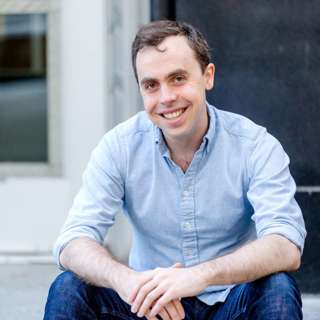
#44 Classic episode - Paul Christiano on finding real solutions to the AI alignment problem
Rebroadcast: this episode was originally released in October 2018. Paul Christiano is one of the smartest people I know. After our first session produced such great material, we decided to do a second recording, resulting in our longest interview so far. While challenging at times I can strongly recommend listening — Paul works on AI himself and has a very unusually thought through view of how it will change the world. This is now the top resource I'm going to refer people to if they're interested in positively shaping the development of AI, and want to understand the problem better. Even though I'm familiar with Paul's writing I felt I was learning a great deal and am now in a better position to make a difference to the world. A few of the topics we cover are:• Why Paul expects AI to transform the world gradually rather than explosively and what that would look like • Several concrete methods OpenAI is trying to develop to ensure AI systems do what we want even if they become more competent than us • Why AI systems will probably be granted legal and property rights • How an advanced AI that doesn't share human goals could still have moral value • Why machine learning might take over science research from humans before it can do most other tasks • Which decade we should expect human labour to become obsolete, and how this should affect your savings plan. • Links to learn more, summary and full transcript. • Rohin Shah's AI alignment newsletter. Here's a situation we all regularly confront: you want to answer a difficult question, but aren't quite smart or informed enough to figure it out for yourself. The good news is you have access to experts who *are* smart enough to figure it out. The bad news is that they disagree. If given plenty of time — and enough arguments, counterarguments and counter-counter-arguments between all the experts — should you eventually be able to figure out which is correct? What if one expert were deliberately trying to mislead you? And should the expert with the correct view just tell the whole truth, or will competition force them to throw in persuasive lies in order to have a chance of winning you over? In other words: does 'debate', in principle, lead to truth? According to Paul Christiano — researcher at the machine learning research lab OpenAI and legendary thinker in the effective altruism and rationality communities — this question is of more than mere philosophical interest. That's because 'debate' is a promising method of keeping artificial intelligence aligned with human goals, even if it becomes much more intelligent and sophisticated than we are. It's a method OpenAI is actively trying to develop, because in the long-term it wants to train AI systems to make decisions that are too complex for any human to grasp, but without the risks that arise from a complete loss of human oversight. If AI-1 is free to choose any line of argument in order to attack the ideas of AI-2, and AI-2 always seems to successfully defend them, it suggests that every possible line of argument would have been unsuccessful. But does that mean that the ideas of AI-2 were actually right? It would be nice if the optimal strategy in debate were to be completely honest, provide good arguments, and respond to counterarguments in a valid way. But we don't know that's the case. The 80,000 Hours Podcast is produced by Keiran Harris.
15 Tammi 20203h 51min
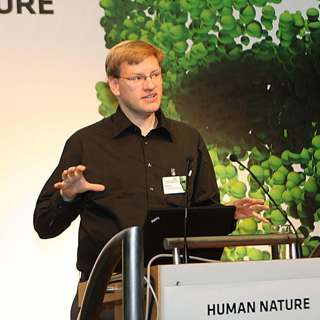
#33 Classic episode - Anders Sandberg on cryonics, solar flares, and the annual odds of nuclear war
Rebroadcast: this episode was originally released in May 2018. Joseph Stalin had a life-extension program dedicated to making himself immortal. What if he had succeeded? According to Bryan Caplan in episode #32, there’s an 80% chance that Stalin would still be ruling Russia today. Today’s guest disagrees. Like Stalin he has eyes for his own immortality - including an insurance plan that will cover the cost of cryogenically freezing himself after he dies - and thinks the technology to achieve it might be around the corner. Fortunately for humanity though, that guest is probably one of the nicest people on the planet: Dr Anders Sandberg of Oxford University. Full transcript of the conversation, summary, and links to learn more. The potential availability of technology to delay or even stop ageing means this disagreement matters, so he has been trying to model what would really happen if both the very best and the very worst people in the world could live forever - among many other questions. Anders, who studies low-probability high-stakes risks and the impact of technological change at the Future of Humanity Institute, is the first guest to appear twice on the 80,000 Hours Podcast and might just be the most interesting academic at Oxford. His research interests include more or less everything, and bucking the academic trend towards intense specialization has earned him a devoted fan base. Last time we asked him why we don’t see aliens, and how to most efficiently colonise the universe. In today’s episode we ask about Anders’ other recent papers, including: • Is it worth the money to freeze your body after death in the hope of future revival, like Anders has done? • How much is our perception of the risk of nuclear war biased by the fact that we wouldn’t be alive to think about it had one happened? • If biomedical research lets us slow down ageing would culture stagnate under the crushing weight of centenarians? • What long-shot drugs can people take in their 70s to stave off death? • Can science extend human (waking) life by cutting our need to sleep? • How bad would it be if a solar flare took down the electricity grid? Could it happen? • If you’re a scientist and you discover something exciting but dangerous, when should you keep it a secret and when should you share it? • Will lifelike robots make us more inclined to dehumanise one another? Get this episode by subscribing to our podcast on the world’s most pressing problems and how to solve them: search for '80,000 Hours' in your podcasting app. The 80,000 Hours Podcast is produced by Keiran Harris.
8 Tammi 20201h 25min

#17 Classic episode - Will MacAskill on moral uncertainty, utilitarianism & how to avoid being a moral monster
Rebroadcast: this episode was originally released in January 2018. Immanuel Kant is a profoundly influential figure in modern philosophy, and was one of the earliest proponents for universal democracy and international cooperation. He also thought that women have no place in civil society, that it was okay to kill illegitimate children, and that there was a ranking in the moral worth of different races. Throughout history we’ve consistently believed, as common sense, truly horrifying things by today’s standards. According to University of Oxford Professor Will MacAskill, it’s extremely likely that we’re in the same boat today. If we accept that we’re probably making major moral errors, how should we proceed?• Full transcript, key points & links to articles discussed in the show. If our morality is tied to common sense intuitions, we’re probably just preserving these biases and moral errors. Instead we need to develop a moral view that criticises common sense intuitions, and gives us a chance to move beyond them. And if humanity is going to spread to the stars it could be worth dedicating hundreds or thousands of years to moral reflection, lest we spread our errors far and wide. Will is an Associate Professor in Philosophy at Oxford University, author of Doing Good Better, and one of the co-founders of the effective altruism (EA) community. In this interview we discuss a wide range of topics: • How would we go about a ‘long reflection’ to fix our moral errors? • Will’s forthcoming book on how one should reason and act if you don't know which moral theory is correct. What are the practical implications of so-called ‘moral uncertainty’? • If we basically solve existential risks, what does humanity do next? • What are some of Will’s most unusual philosophical positions? • What are the best arguments for and against utilitarianism? • Given disagreements among philosophers, how much should we believe the findings of philosophy as a field? • What are some the biases we should be aware of within academia? • What are some of the downsides of becoming a professor? • What are the merits of becoming a philosopher? • How does the media image of EA differ to the actual goals of the community? • What kinds of things would you like to see the EA community do differently? • How much should we explore potentially controversial ideas? • How focused should we be on diversity? • What are the best arguments against effective altruism? Get this episode by subscribing: type '80,000 Hours' into your podcasting app. The 80,000 Hours Podcast is produced by Keiran Harris.
31 Joulu 20191h 52min

#67 – David Chalmers on the nature and ethics of consciousness
What is it like to be you right now? You're seeing this text on the screen, smelling the coffee next to you, and feeling the warmth of the cup. There’s a lot going on in your head — your conscious experience. Now imagine beings that are identical to humans, but for one thing: they lack this conscious experience. If you spill your coffee on them, they’ll jump like anyone else, but inside they'll feel no pain and have no thoughts: the lights are off. The concept of these so-called 'philosophical zombies' was popularised by today’s guest — celebrated philosophy professor David Chalmers — in order to explore the nature of consciousness. In a forthcoming book he poses a classic 'trolley problem': "Suppose you have a conscious human on one train track, and five non-conscious humanoid zombies on another. If you do nothing, a trolley will hit and kill the conscious human. If you flip a switch to redirect the trolley, you can save the conscious human, but in so doing kill the five non-conscious humanoid zombies. What should you do?" Many people think you should divert the trolley, precisely because the lack of conscious experience means the moral status of the zombies is much reduced or absent entirely. So, which features of consciousness qualify someone for moral consideration? One view is that the only conscious states that matter are those that have a positive or negative quality, like pleasure and suffering. But Dave’s intuitions are quite different. • Links to learn more, summary and full transcript. • Advice on how to read our advice. • Anonymous answers on: bad habits, risk and failure. Instead of zombies he asks us to consider 'Vulcans', who can see and hear and reflect on the world around them, but are incapable of experiencing pleasure or pain. Now imagine a further trolley problem: suppose you have a normal human on one track, and five Vulcans on the other. Should you divert the trolley to kill the five Vulcans in order to save the human? Dave firmly believes the answer is no, and if he's right, pleasure and suffering can’t be the only things required for moral status. The fact that Vulcans are conscious in other ways must matter in itself. Dave is one of the world's top experts on the philosophy of consciousness. He helped return the question 'what is consciousness?' to the centre stage of philosophy with his 1996 book 'The Conscious Mind', which argued against then-dominant materialist theories of consciousness. This comprehensive interview, at over four hours long, outlines each contemporary theory of consciousness, what they have going for them, and their likely ethical implications. Those theories span the full range from illusionism, the idea that consciousness is in some sense an 'illusion', to panpsychism, according to which it's a fundamental physical property present in all matter. These questions are absolutely central for anyone who wants to build a positive future. If insects were conscious our treatment of them could already be an atrocity. If computer simulations of people will one day be conscious, how will we know, and how should we treat them? And what is it about consciousness that matters, if anything? Dave Chalmers is probably the best person on the planet to ask these questions, and Rob & Arden cover this and much more over the course of what is both our longest ever episode, and our personal favourite so far. Chapters:Rob's intro (00:00:00)The interview begins (00:02:11)Philosopher’s survey (00:06:37)Free will (00:13:37)Survey correlations (00:20:06)Progress in philosophy (00:35:01)Simulations (00:51:30)The problem of consciousness (01:13:01)Dualism and panpsychism (01:26:52)Is consciousness an illusion? (01:34:52)Idealism (01:43:13)Integrated information theory (01:51:08)Moral status and consciousness (02:06:10)Higher order views of consciousness (02:11:46)The views of philosophers on eating meat (02:20:23)Artificial consciousness (02:34:25)The zombie and vulcan trolley problems (02:38:43)Illusionism and moral status (02:56:12)Panpsychism and moral status (03:06:19)Mind uploading (03:15:58)Personal identity (03:22:51)Virtual reality and the experience machine (03:28:56)Singularity (03:42:44)AI alignment (04:07:39)Careers in academia (04:23:37)Having fun disagreements (04:32:54)Rob’s outro (04:42:14) Producer: Keiran Harris.
16 Joulu 20194h 41min
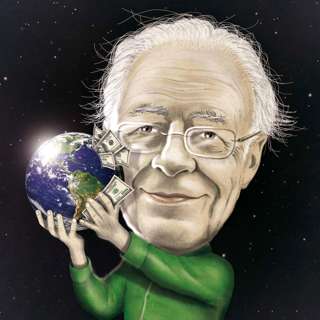
#66 – Peter Singer on being provocative, effective altruism, & how his moral views have changed
In 1989, the professor of moral philosophy Peter Singer was all over the news for his inflammatory opinions about abortion. But the controversy stemmed from Practical Ethics — a book he’d actually released way back in 1979. It took a German translation ten years on for protests to kick off. According to Singer, he honestly didn’t expect this view to be as provocative as it became, and he certainly wasn’t aiming to stir up trouble and get attention. But after the protests and the increasing coverage of his work in German media, the previously flat sales of Practical Ethics shot up. And the negative attention he received ultimately led him to a weekly opinion column in The New York Times. • Singer's book The Life You Can Save has just been re-released as a 10th anniversary edition, available as a free e-book and audiobook, read by a range of celebrities. Get it here. • Links to learn more, summary and full transcript. Singer points out that as a result of this increased attention, many more people also read the rest of the book — which includes chapters with a real ability to do good, covering global poverty, animal ethics, and other important topics. So should people actively try to court controversy with one view, in order to gain attention for another more important one? Perhaps sometimes, but controversy can also just have bad consequences. His critics may view him as someone who says whatever he thinks, hang the consequences, but Singer says that he gives public relations considerations plenty of thought. One example is that Singer opposes efforts to advocate for open borders. Not because he thinks a world with freedom of movement is a bad idea per se, but rather because it may help elect leaders like Mr Trump. Another is the focus of the effective altruism community. Singer certainly respects those who are focused on improving the long-term future of humanity, and thinks this is important work that should continue. But he’s troubled by the possibility of extinction risks becoming the public face of the movement. He suspects there's a much narrower group of people who are likely to respond to that kind of appeal, compared to those who are drawn to work on global poverty or preventing animal suffering. And that to really transform philanthropy and culture more generally, the effective altruism community needs to focus on smaller donors with more conventional concerns. Rob is joined in this interview by Arden Koehler, the newest addition to the 80,000 Hours team, both for the interview and a post-episode discussion. They only had an hour with Peter, but also cover: • What does he think is the most plausible alternatives to consequentialism? • Is it more humane to eat wild caught animals than farmed animals? • The re-release of The Life You Can Save • His most and least strategic career decisions • Population ethics, and other arguments for and against prioritising the long-term future • What led to his changing his mind on significant questions in moral philosophy? • And more. In the post-episode discussion, Rob and Arden continue talking about: • The pros and cons of keeping EA as one big movement • Singer’s thoughts on immigration • And consequentialism with side constraints. Get this episode by subscribing to our podcast on the world’s most pressing problems and how to solve them: type 80,000 Hours into your podcasting app. Or read the linked transcript. Producer: Keiran Harris. Audio mastering: Ben Cordell. Transcriptions: Zakee Ulhaq. Illustration of Singer: Matthias Seifarth.
5 Joulu 20192h 1min
